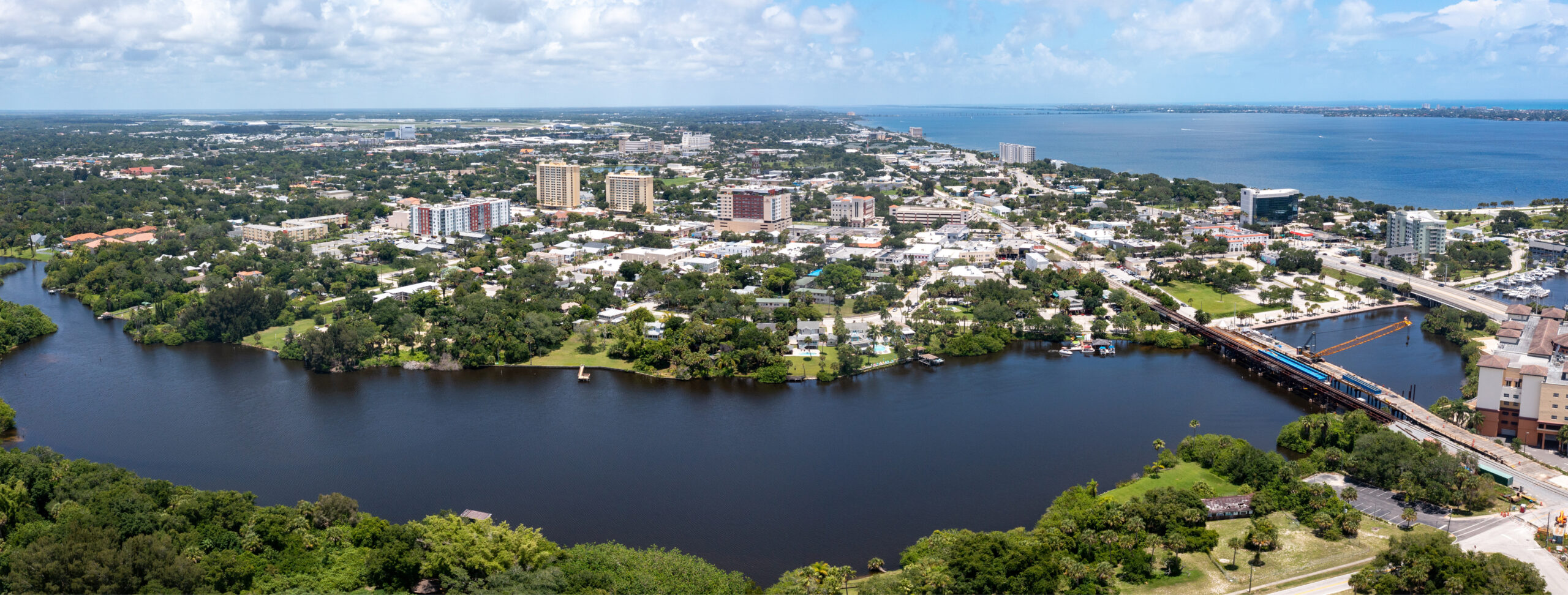The harshest DUI penalty in Florida is vehicular manslaughter while under the influence of alcohol or controlled substances. The state recognizes the senselessness of vehicle deaths as the result of impairment, and assigns those charged with DUI vehicular manslaughter a second- or first-degree felony charge.
Being convicted with DUI vehicular manslaughter almost always means prison with stiff restrictions once you get out.
Brevard County DUI Manslaughter Defense Attorneys
From the loss of family members on the victim’s side, to a lifetime of regret on the side of the accused, the impact of DUI manslaughter is terrible. However, everyone deserves strong legal representation. Whether you have been falsely accused or are seeking to mitigate the damages of a DUI trial, you need to contact the experienced DUI defense attorneys at Germain Legal.
Contact Germain Legal by calling (321) 775-3559 or submit an online form today to start building your DUI defense.
Germain Legal serves Brevard County, Indian River County, Volusia County and Osceola County.
What is DUI Manslaughter?
According to Florida Statutes Section 316.193(3), DUI Manslaughter means a person, while driving under the influence of alcohol or drugs, causes the death of another individual. For a person to be convicted of DUI Manslaughter, the prosecutor must prove the following:
- Impaired Driving: The person was operating a vehicle while under the influence of alcohol or drugs. This can be demonstrated by showing that the person’s normal faculties were impaired, or their blood-alcohol or breath-alcohol level was 0.08 or higher.
- Operation of the Vehicle: The person was actually driving or in physical control of the vehicle at the time of the incident.
- Causation of Death: The impaired driving led to an accident or incident that directly resulted in the death of another person or an unborn child.
In cases involving serious bodily injury or death, law enforcement officers may use reasonable force to obtain a blood sample from a suspect.
What Are the Penalties for DUI Manslaughter?
| Classification | Penalty |
| DUI Manslaughter | Felony of the Second Degree Fine: Up to $10,000 Imprisonment: Up to 15 years Mandatory Minimum Imprisonment: 4 year |
| DUI Manslaughter with Failure to Give Information and Render Aid | Felony of the First Degree Fine: Up to $10,000 Imprisonment: Up to 30 years Mandatory Minimum Imprisonment: 4 year |
What Are Potential Non-Jail Alternatives?
Probation: After serving the mandatory minimum term, the offender may be placed on probation. During this time, the individual is supervised by a probation officer and must follow specific rules set by the court. The court may also require the person to participate in a public service or community work project.
Residential Treatment Program: The court may allow the person to serve all or part of their jail sentence in a residential alcoholism or drug abuse treatment program. Time spent in a program is credited toward the total jail time.
Vehicle Impoundment or Immobilization: The court may order the impoundment or immobilization of any vehicles owned or operated by the convicted person for a specific period.
Qualified Sobriety and Drug Monitoring Program: As an additional measure, the court may require participation in a program that regularly tests for alcohol or drug use. This program ensures that the person remains sober and is monitored closely, helping to reduce the risk of reoffending. The person must bear the cost of participating in this program.
What Are Potential Defenses in DUI Manslaughter Cases?
Disputing the Breath or Blood Test Accuracy: The accuracy of blood or breath tests used to determine alcohol levels can be challenged. Factors like improper calibration of devices, faulty equipment, or human error during the test administration may lead to unreliable results.
Questioning the Cause of the Accident: It must be proven that the defendant’s impaired driving directly caused the accident leading to death. The defense may argue that other factors, such as the actions of another driver, road conditions, or mechanical failures, were the primary cause of the accident.
Contesting Field Sobriety Test Results: The validity of field sobriety tests can be questioned. These tests are subjective and can be influenced by factors unrelated to alcohol consumption, such as physical disabilities, fatigue, anxiety, or weather conditions.
Challenging the Legality of the Traffic Stop: The defense may argue that the initial traffic stop was unlawful, which could lead to the suppression of evidence gathered after the stop. If the police did not have a valid reason to stop the vehicle, any evidence obtained as a result of that stop, including breath or blood tests, could be excluded from the case.
Medical or Health Conditions: The defense may argue that a medical condition or health issue caused the defendant’s impaired behavior, rather than alcohol or drugs. Certain conditions, such as diabetes, can mimic the symptoms of intoxication, including slurred speech or unsteady gait, which could lead to a wrongful DUI charge.
Improper Administration of Miranda Rights: If the defendant was not properly informed of their Miranda rights during the arrest, any statements made during the interrogation may be excluded. The defense can argue that the defendant’s rights were violated, which could lead to a dismissal of certain evidence.
Unreliable Witness Testimony: Witnesses to the incident may provide inconsistent or unreliable testimonies. The defense can highlight discrepancies in witness accounts or question the credibility of witnesses to create reasonable doubt about the defendant’s responsibility for the accident.
What Can a DUI Manslaughter Attorney Do For Me?
Facing a charge of DUI manslaughter can be overwhelming. The stakes are incredibly high, and the legal process is often confusing. That’s where a lawyer who handles DUI manslaughter cases comes in. They guide you through the legal system, help you understand what you’re up against, and work to protect your rights.
One of the first things a lawyer does is explain the charges against you. DUI manslaughter is a serious offense, and understanding the legal terms and potential consequences is crucial. Your lawyer will make sure you know what’s happening every step of the way, so you’re not left in the dark.
A lawyer also gathers and reviews evidence. They look at police reports, witness statements, and any other information related to the case. This helps them see what the prosecution might use against you and find ways to challenge it. If there’s any evidence that could work in your favor, your lawyer will make sure it becomes known.
Negotiation is another important part of a lawyer’s job. They communicate with the prosecution on your behalf, aiming to get the best possible outcome. This could involve reducing the charges or minimizing the penalties if a conviction seems likely. Your lawyer fights for your best interests throughout the process.
Courtroom experience is also vital in a DUI manslaughter case. If your case goes to trial, your lawyer will present your case, question witnesses, and argue in front of the judge and jury. They know how to present information in a way that supports your case and challenges the prosecution’s arguments.
Finally, a lawyer provides emotional support during a tough time. They know this process is stressful and offer guidance and reassurance. While they can’t make the charges go away, they can help you feel more confident and prepared to face what’s ahead.
Frequently Asked Questions
What happens to someone’s driver’s license if they are convicted of DUI Manslaughter in Florida? For a conviction of felony DUI manslaughter in Florida, the individual’s driver’s license is permanently revoked. This means that the person loses their driving privileges indefinitely. While there may be limited circumstances under which the person can petition for a hardship license after a set period of time (usually five years or more), reinstatement of full driving privileges is not automatically granted and is very difficult to obtain due to the seriousness of the offense. Generally, drivers must complete a DUI school program or an advanced driver improvement course as a condition of hardship reinstatement.
Can a person convicted of DUI Manslaughter be eligible for probation in Florida? Yes, a person convicted of DUI Manslaughter may be placed on probation. During probation, the person must comply with specific conditions, including participation in public service or community work, which may substitute for fines under certain circumstances.
What if the DUI Manslaughter conviction involves the death of an unborn child? In Florida, DUI Manslaughter includes causing the death of an unborn child. The penalties are the same as causing the death of a human being, which includes a second-degree felony, punishable by fines, imprisonment, and other legal consequences.
Are there additional penalties if someone convicted of DUI Manslaughter tries to flee the scene? Yes, if a person convicted of DUI Manslaughter knew or should have known about the crash and failed to stop to provide information and render aid, they face a first-degree felony.
Additional Resources
Florida Statutes Section 316.193(3) – DUI Manslaughter – This law outlines the penalties for DUI manslaughter in Florida. A person who drives under the influence and causes the death of another person, including an unborn child, may be charged with a second-degree or first-degree felony, depending on the circumstances. The law includes mandatory minimum prison sentences and other penalties that increase with prior convictions or if the driver leaves the scene of the accident.
Penalties for Drunk Driving Vehicular Homicide – This resource provides an overview of the penalties across different states for drivers who cause fatalities while driving under the influence. The penalties vary significantly by state, ranging from a few years in prison to life sentences. It also highlights the discretion judges may have in sentencing, which can result in varying outcomes for similar offenses, with some states allowing for probation while others impose harsher penalties.
DUI Manslaughter and Administrative Suspension Laws – This page explains Florida’s laws regarding DUI manslaughter and the administrative suspension of driver licenses. It covers the mandatory penalties for DUI convictions, including fines, imprisonment, and the suspension of driving privileges. The resource also covers the administrative process for license suspension following a DUI arrest and the conditions under which a driver might apply for a hardship license.
Drunk Driving and Car Insurance Rates – This resource explains how a DUI conviction affects car insurance rates. It outlines the potential financial impact, showing that car insurance premiums can increase significantly after a DUI, often doubling or more. It also discusses the challenges of finding an insurance provider willing to cover a high-risk driver.
Hire a DUI Manslaughter Defense Attorney in Brevard County, FL
If you or a loved one have been charged with DUI manslaughter you need to contact an experienced DUI defense attorney immediately.
Contact Germain Legal by calling (321) 775-3559 or submit an online form today to start building your DUI defense.
Mark Germain serves the counties of Brevard, Orange, Volusia, Osceola, and Indian River and the cities of Melbourne, Palm Bay, Titusbay, Vero Beach, Gilford, Sebastian, Deltona, Daytona Beach, Port Orange, Kissimmee and Poinciana.



